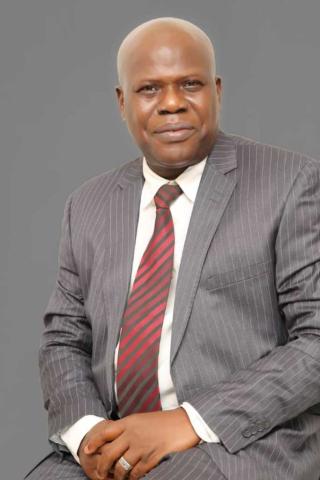
Despite being home to somewhere between 250 and 400 ethnic groups, Nigeria is primarily made up of four main ethnic groups – Yoruba, Ibo, Hausa and Fulani, and for over 60 years, our beloved country Nigeria has been ruled by a succession of military and civilian regimes which rank among the most oppressive dictatorships in the world.
After years of misrule, maladministration, nepotism, corruption, oppression and cruelty, Nigeria's future will be decided by the way its government chooses to treat the issue of many diverse ethnic groups living within its borders, including that of trust deficit and the 2023 general elections.
Despite being home to somewhere between 250 and 400 ethnic groups, Nigeria is primarily made up of four main ethnic groups – Yoruba, Ibo, Hausa and Fulani, and for over 60 years, our beloved country Nigeria has been ruled by a succession of military and civilian regimes which rank among the most oppressive dictatorships in the world.
Some of the regimes have been accused of crimes against humanity, they have brutally mistreated their people. Yet in the last couple of years, and in spite of sham elections, the pace of change has been unexciting. Much is now hoped for. However, Nigeria is one of the most ethnically diverse nations in the continent of Africa: with its four major ethnic nationalities and the close to 400 ethnic groups living along its borders. They have a long history of conflict with terrorists, bandits and have been cruelly treated by the current regime.

Disappointedly, despite the humongous resources at the disposal of Nigeria, particularly between 1999 and 2022, nothing to show for it, everything including infrastructure went to rot completely within the same period. Nigeria remains the poverty capital in the world in terms of the number of people but is below other countries in poverty in percentages. Niger has 72% of its population in extreme poverty, Madagascar has 77%, the Democratic Republic of Congo has 75%, Central African republican has 79%, while South Sudan has 80% of its population in extreme poverty.
Similarly, conflict in Nigeria has become more complicated than “Christians vs. Muslims" as the killings persist, Nigerians are weaving destructive conspiracy theories to explain the conflict. Charges and counter-charges fly of ethnic cleansing and even genocide becomes more and more like an everyday talk. Nigeria, the most populous country in sub-Saharan Africa as well as the biggest economy, is facing a severe crisis in its nation-building process. Virtually every part of Nigeria is affected.
Conclusively, permit me to use the critical situation of U.S Airbus flight A320214 of 15th January 2009. LEADERSHIP as exemplified by the Captain. Please find below:-
January 15, 2009, US Airways Flight 1549, an Airbus A320 on a flight from New York City's LaGuardia Airport to Charlotte, North Carolina, struck a flock of birds shortly after take-off, losing all engine power. Unable to reach any airport for an emergency landing due to their low altitude, pilots Chesley "Sully" Sullenberger and Jeffrey Skiles glided the plane to a ditching in the Hudson River off Midtown Manhattan. [1] All 155 people on board were rescued by nearby boats, with only a few serious injuries.
This water landing of a powerless jetliner with no deaths became known as the Miracle on the Hudson,[2] and a National Transportation Safety Board official described it as "the most successful ditching in aviation history".[3] The Board rejected the notion that the pilot could have avoided ditching by returning to LaGuardia or diverting to nearby Teterboro Airport.
The pilots and flight attendants were awarded the Master's Medal of the Guild of Air Pilots and Air Navigators in recognition of their "heroic and unique aviation achievement".[4] It was dramatized in the 2016 film Sully, starring Tom Hanks as Sullenberger.
That incident took more than the action of the pilot (President) to achieve the successful outcome in my opinion. He needed a well-trained crew (Ministers), a cohort of passengers (the populace) that would execute the directives of the pilot & crew (an educated group of passengers), and a plane (country/nation) that was well maintained (educated/prepared). You can see these elements/factors as a model for achieving success in the nexus between leadership & followership. The pilot & crew did not just see a job, they instead saw responsibility, service and the sanctity of life as primarily what they were there to ensure; which comes from societal values and a people's orientation in general!
The moral of the story: Working together as a team saves lives. The pilot displayed the qualities of quick thinking, determination, calm demeanour and resilience in saving all of the passengers on board. A quality every leader should possess. The pilot made the choice to go into the Hudson rather than try to make it to an airport and risk everyone's life. That was a tough decision where experience shone.
Also, a leader should be able to put in the extra hours, picking up where someone didn’t finish, going the extra mile to make sure the job gets done and not complaining, bragging, or indulging in frivolities. It sure underscores the need for a TRANSFORMATIONAL creative and innovative leader as we navigate through the storm.
Richard Odusanya is a Social Reform Crusader and the convener of AFRICA COVENANT RESCUE INITIATIVE ACRI